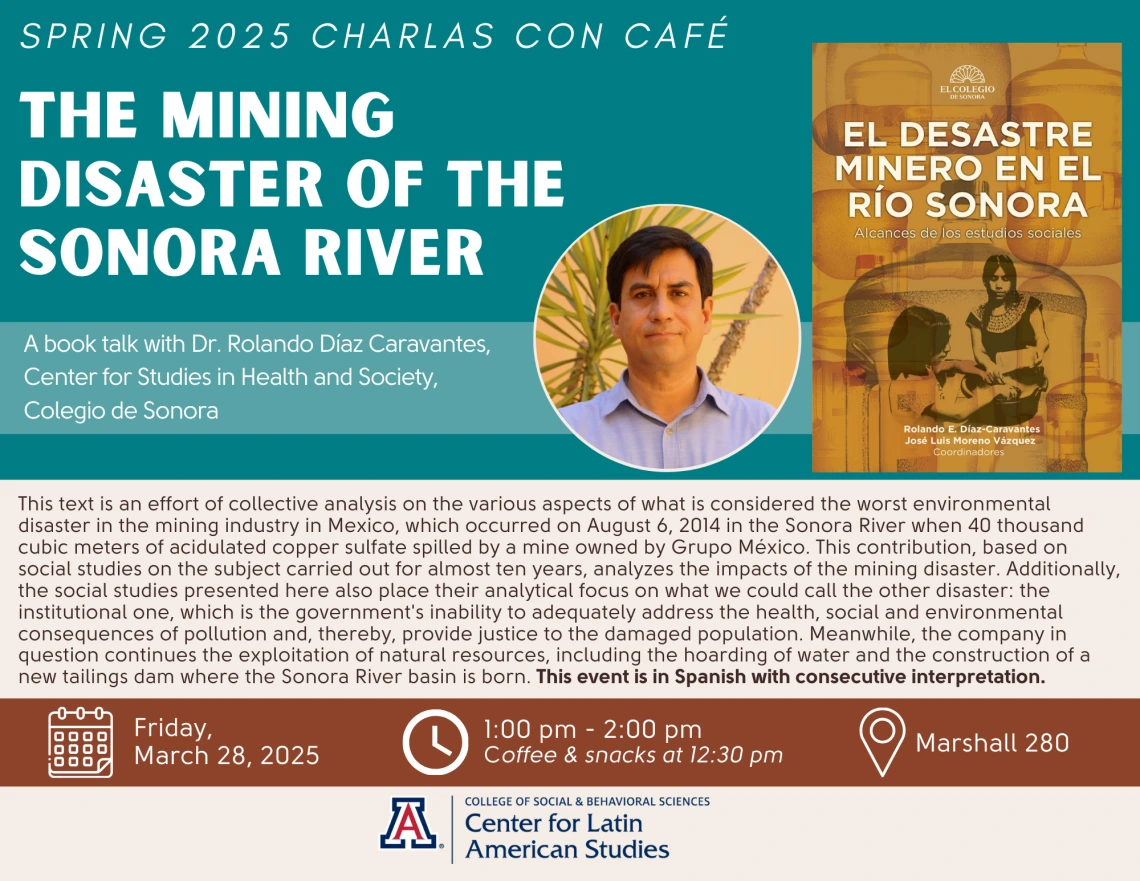
When
Where
Center for Latin American Studies, Spring 2025 Charlas con Café – a weekly space to hear lectures from a wide variety of experts and discuss topics relevant to the Latin American region, Fridays from 1-2 pm (unless otherwise specified). Coffee & snacks at 12:30pm!
This event is in Spanish with simultaneus interpretation.
This text is an effort of collective analysis on the various aspects of what is considered the worst environmental disaster in the mining industry in Mexico, which occurred on August 6, 2014 in the Sonora River when 40 thousand cubic meters of acidulated copper sulfate spilled by a mine owned by Grupo México. This contribution, based on social studies on the subject carried out for almost ten years, analyzes the impacts of the mining disaster. Additionally, the social studies presented here also place their analytical focus on what we could call the other disaster: the institutional one, which is the government's inability to adequately address the health, social and environmental consequences of pollution and, thereby, provide justice to the damaged population. Meanwhile, the company in question continues the exploitation of natural resources, including the hoarding of water and the construction of a new tailings dam where the Sonora River basin is born.
Presenter: Rolando E. Díaz Caravantes, Center for Studies in Health and Society, Colegio de Sonora
Professor Rolando E. Díaz Caravantes works in El Colegio de Sonora at the Center for Studies in Health and Society.
He earned his doctorate from the School of Geography and Development at the University of Arizona and has a master's degree in social sciences from El Colegio de Sonora. He is a member of the National System of Researchers Level II. He has studied human-environment-water interaction focusing on how the livelihoods of smallholder farmers have been negatively affected by environmental conditions. Specifically, he studies socio-water vulnerability and risk in communities along the Sonora River produced by the 2014 mining disaster. He has also examined the social determinants of health risk related to high temperatures in Sonora. He has recently proposed the participatory approach Community Activation from its Resources (ACR) focused on the development of capacities of people who accompany communities.

